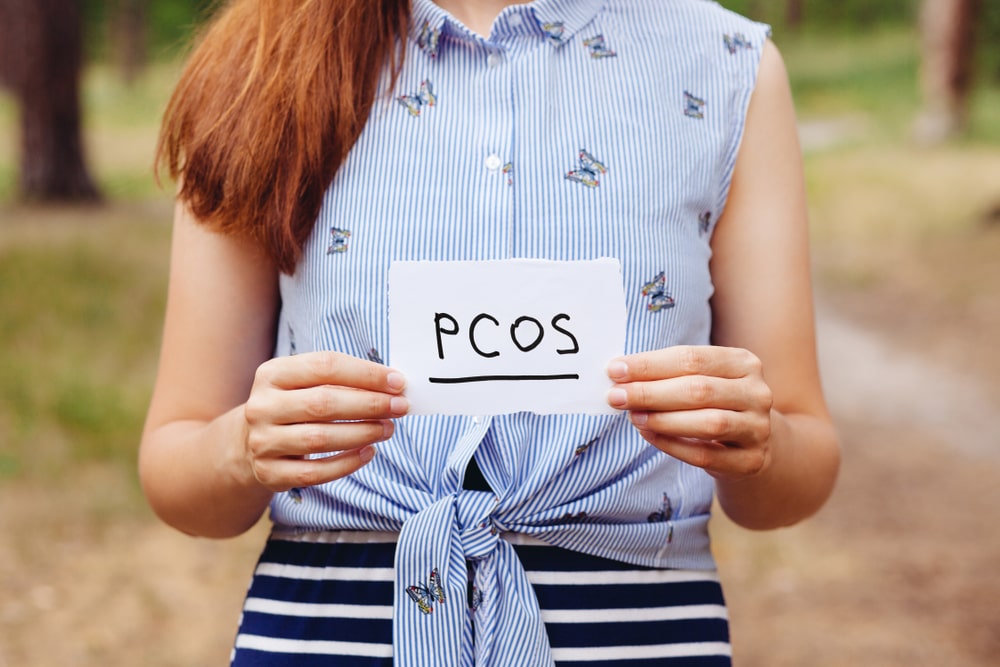5 Tips for Healthy Eating With Polycystic Ovarian Syndrome (PCOS)
by Hannah Jackson

As many as 1.4 million Canadians are affected by PCOS.
Polycystic Ovarian Syndrome (PCOS) is a hormonal disorder affecting those with ovaries. It alters the body’s hormones, metabolism, and reproductive health causing irregular periods, fertility issues, and cystitis within the ovaries.
Research has shown healthy eating habits and regular physical activity helps to manage PCOS.
A balanced eating pattern focusing on whole foods can help you manage your weight, blood sugar, and symptoms of PCOS. A primary goal of treatment is generally improving insulin sensitivity through diet, exercise, and in some cases, medications.
Whether you have been newly diagnosed with PCOS or are just looking to learn, here are five tips for healthy eating with PCOS.

1. Maintain a Healthy Weight
The hormonal imbalances associated with PCOS can cause changes to the body’s metabolism. This is partly due to the insulin resistance present in ~35% of PCOS cases.
Insulin is a hormone released from the pancreas after eating, which helps move energy (glucose) into the body’s cells. PCOS can cause insulin to be over-produced, leading to increased energy storage in the form of fat.
Maintaining a healthy weight is important to limit your risk of developing chronic diseases such as type 2 diabetes, hypertension, dyslipidemia, cardiovascular disease, and stroke. You can do this by eating healthy and exercising regularly.
Click here for resources by Health Canada on healthy weights.
2. Fibre
Fibre is an important part of any diet, especially for those with PCOS. Fibre helps lower cholesterol, maintain normal blood sugar levels, and keep you fuller for longer, reducing your risk of developing type 2 diabetes and cardiovascular disease.
Foods high in fibre tend to have a low glycemic index. The glycemic index (GI) is a scale from 1 to 100 that ranks foods according to how much they raise your blood sugar level.
Including a variety of low GI foods has been associated with a reduced risk of developing type 2 diabetes, cardiovascular disease, metabolic syndrome, and breast/ovarian cancers in those with PCOS.
As a general rule, aim to consume 20-40 grams of fibre per day. Your specific fibre needs can depend on your sex, age, lifestyle, and dietary habits. Speak to a Registered Dietitian to determine your unique needs.
3. Healthy Fats
When eating for PCOS, it is important to include healthy fats like omega-3s.
Omega-3s work to lower your triglycerides and cholesterol levels, which can reduce the risk of developing chronic diseases. This is important for those with PCOS who already have an elevated risk of have developing cardiovascular disease.
Good sources of omega-3s are walnuts, canola oil, fatty fish and other seafood, flax and chia seeds, as well as navy and soybeans.
4. Vitamin D
Vitamin D deficiency can be common in those with PCOS and is thought to be associated with insulin resistance. As a result, it is important to keep vitamin D levels within a healthy range.
One study found that vitamin D supplementation improves insulin resistance, hyperlipidemia, and hormonal balances in those with PCOS.
You can find vitamin D in foods like fortified milk products, fatty fish, and egg yolks. However, one of the easiest ways to get your vitamin D in is to get some sunshine!
However, most Canadians are unable to get enough sunlight from October to March to synthesize adequate amounts of vitamin D. Therefore, supplementation may be required, likely in the amount of 400 IU per day but no more than 1000 IU for both children and adults.
5. It’s All About Balance
The best way to ensure that you get all the nutrients you need is by following Canada’s Food Guide. This means eating a variety of foods and maintaining balance within your diet.
What to expect when working with a Dietitian:
A Registered Dietitian will help restore your relationship with food while eating a balanced meal pattern that is easy, enjoyable, and delicious – and personalized to your likes, resources, and access.
You’ll receive safe and simple strategies to improve your health and trustworthy guidance that may assist with symptom management for PCOS.
About the Author: Hannah Jackson is a third-year Dietetics student at the University of Alberta.
Reviewed by: Lindsey McGregor, RD
The Site is not intended to be a substitute for professional advice. Under no circumstances will we be liable for any loss or damage caused by your reliance on information obtained through the Site. You are responsible for evaluating the accuracy, completeness, or usefulness of any information, opinion, advice, or other content available through the Site. Please seek the advice of professionals, as appropriate, regarding the evaluation of any specific information, opinion, advice, or other content. Never disregard professional advice, including medical advice, or delay in seeking it because of something you have read on this Site.
